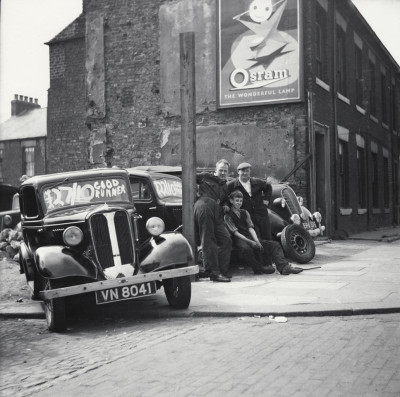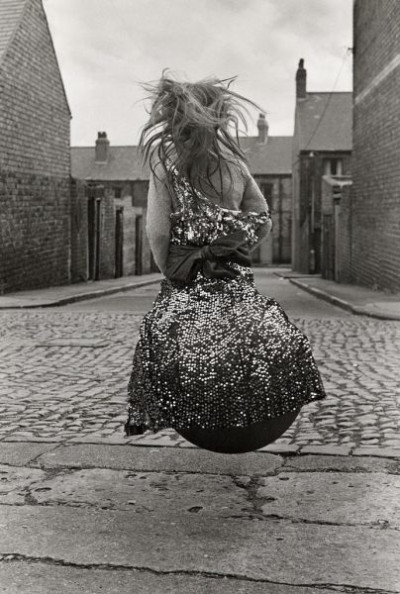
Survival Programmes
Exit Photography Group
Chris Steele-Perkins
Paul Trevor
Nicholas Battye

Survival Programmes
Exit Photography Group |
Chris Steele-Perkins |
Paul Trevor |
Nicholas Battye
- Photographic
- Communities
- Urban Landscapes
- UK Documentary
- Place
- Politics & Struggles
- Work & Unemployment
- Popular Cultures
- 1968 – 1979
- 1980 – 1989
- UK
Between 1974 and 1979, three photographers [Nicholas Battye, Chris Steele-Perkins and Paul Trevor] set out to document life in Britain’s inner cities at a time of profound economic and social transformation. Working in London, Birmingham, Liverpool, Newcastle, Glasgow and Belfast, they created Survival Programmes, a deeply immersive visual and narrative study capturing the lives of communities in transition.
Through striking black and white photographs, the exhibition presents an unfiltered record of working-class lives, exploring themes of housing, employment, family, protest and resilience. The exhibition provides a nuanced portrait of urban Britain at a pivotal moment, where industrial decline, racial tensions and government policy intersected to reshape cities and the communities within them.
The remarkable ambition and vision of Survival Programmes continues to challenge contemporary policy on social exclusion, social values and social justice. Widely acclaimed when it first appeared, the work has since acquired cult status.
The exhibition prints were made by Sid Kaplan, the New York printer responsible for the Weegee prints in the AmberSide Collection.
The Exit Photography Group was a documentary photography collective formed in the 1970s by Nicholas Battye, Chris Steele-Perkins, and Paul Trevor. Active between 1974 and 1979, the group undertook an extensive photographic study of social and economic conditions in Britain’s inner cities.
Their work is a significant example of the development of documentary photography culture in Great Britain during the seventies.
The group formed in 1973 and developed a collaborative work method, sharing tasks equally in gathering, processing, editing, and shaping their material. The Exit Photography Group was part of a wider movement that helped shape a politically engaged documentary photography culture in Britain during the 1970s. This period saw the establishment of new platforms for photography, from the founding of The Photographer’s Gallery in 1971 to the Half Moon Gallery and the influential magazine Camerawork, as well as the opening of Side Gallery, in 1977.
With public funding from the Arts Council Photography Subcommittee from 1972, this era saw the institutionalisation and democratisation of photography, providing new opportunities for socially engaged projects. Within this context, their project Survival Programmes stands as one of the most significant documentary works of its time.

Survival Programmes: Sunday afternoon, Mozart Street, Granby, Liverpool, 1975
- Ref: 01PT15-1
- Date: 1975
- Artist: Paul Trevor
- Copyright: © Paul Trevor
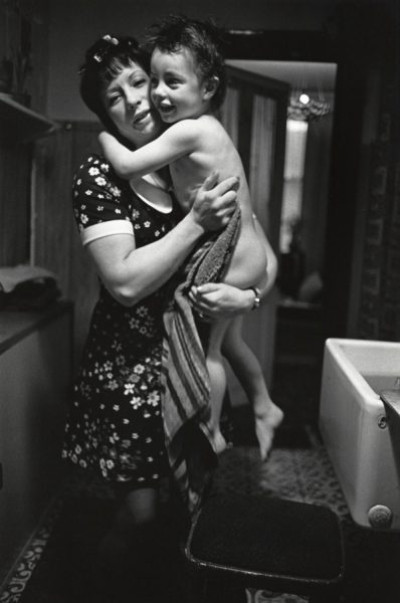
Survival Programmes: Single-parent family, Bordsley Green, Birmingham, 1975
- Ref: 03NB19-1
- Date: 1975
- Artist: Nicholas Battye
- Copyright: © Nicholas Battye
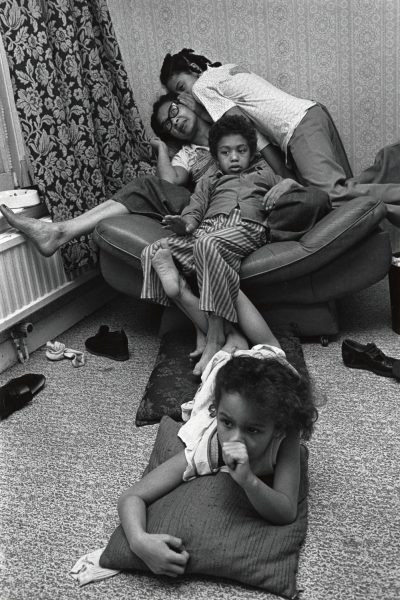
Survival Programmes: Single parent family, Brixton, London, 1977
- Ref: 05NB23-1
- Date: 1977
- Artist: Nicholas Battye
- Copyright: © Nicholas Battye
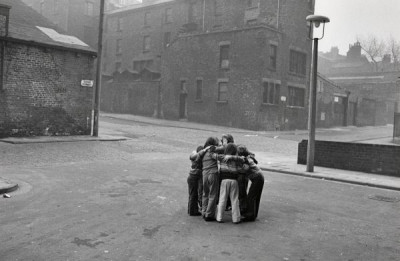
Survival Programmes: Choosing sides for football, Everton, Liverpool, 1975
- Ref: 07PT27-1
- Date: 1975
- Artist: Paul Trevor
- Copyright: © Paul Trevor

Survival Programmes: Kids’ den in garage, Mozart Street, Granby, Liverpool, 1975
- Ref: 09PT31-1
- Date: 1975
- Artist: Paul Trevor
- Copyright: © Paul Trevor

Survival Programmes: Education Unit, Melting Pot Foundation, Brixton, London, 1977
- Ref: 10NB33-1
- Date: 1977
- Artist: Nicholas Battye
- Copyright: © Nicholas Battye
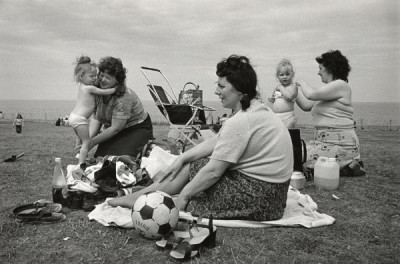
Survival Programmes: Mozart Street outing, Ainsdale, Lancashire, 1975
- Ref: 12-1
- Date: 1975
- Artist: Paul Trevor
- Copyright: © Paul Trevor
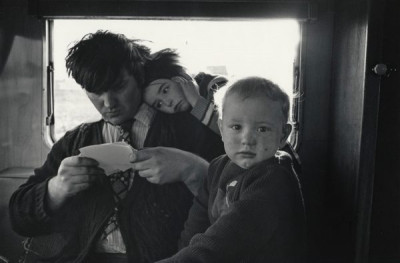
Survival Programmes: Gypsy family, Middlesbrough, 1975
- Ref: 13CSP39-1
- Date: 1968 – 1979, 1980 – 1989
- Artist: Chris Steele-Perkins
- Copyright: © Chris Steele-Perkins

Survival Programmes: Shape hostel for rootless youth, Small Heath, Birmingham, 1975
- Ref: 15NB43-1
- Date: 1975
- Artist: Nicholas Battye
- Copyright: © Nicholas Battye
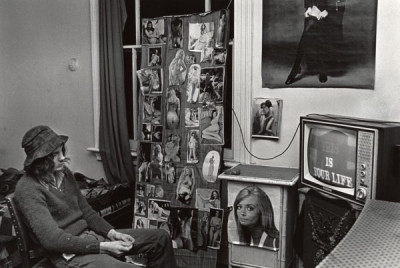
Survival Programmes: Shape hostel for rootless youth, Small Heath, Birmingham, 1975
- Ref: 46-1
- Date: 1975
- Artist: Nicholas Battye
- Copyright: © Nicholas Battye
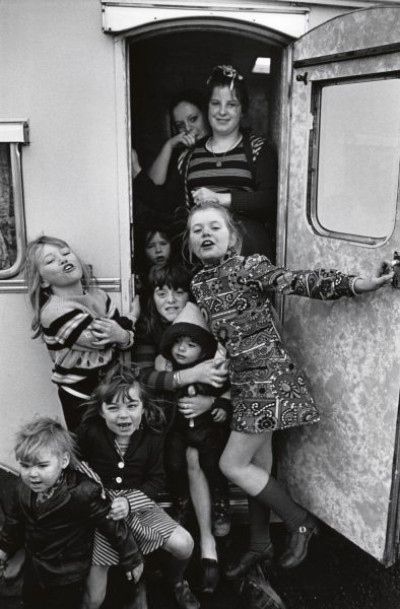
Survival Programmes: Gypsies, Middlesbrough, 1975
- Ref: 16-1
- Date: 1975
- Artist: Chris Steele-Perkins
- Copyright: © Chris Steele-Perkins
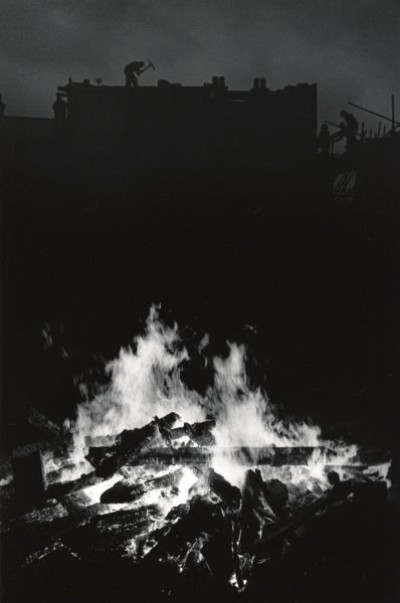
Survival Programmes: Clearance area, Aldgate, London, 1974
- Ref: 22PT59-1
- Date: 1974
- Artist: Paul Trevor
- Copyright: © Paul Trevor
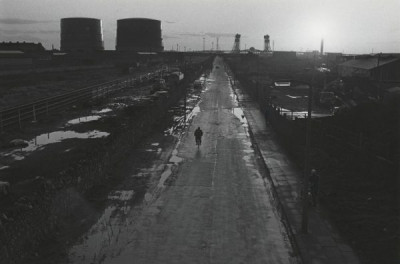
Survival Programmes: Industrial area, Middlesbrough, 1975
- Ref: 23-1
- Date: 1975
- Artist: Chris Steele-Perkins
- Copyright: © Chris Steele-Perkins

Survival Programmes: Sick child, council flat, Everton, Liverpool, 1975
- Ref: 31PT77-1
- Date: 1975
- Artist: Paul Trevor
- Copyright: © Paul Trevor
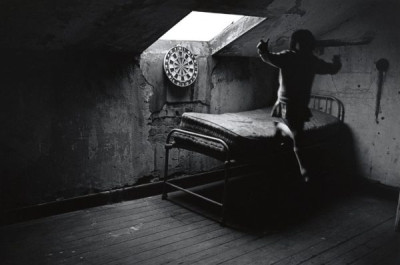
Survival Programmes: Play Space, Condemned House, Handsworth, Brimingham, 1975
- Ref: 73NB79-1
- Date: 1975
- Artist: Nicholas Battye
- Copyright: © Nicholas Battye
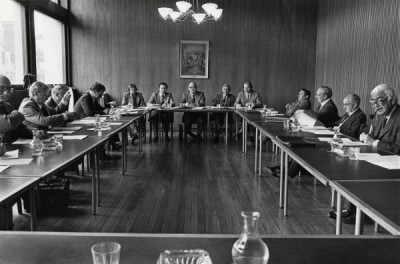
Survival Programmes: T.U.C. Economic Committee, Congress House, London, 1978
- Ref: 36CSP87-1
- Date: 1978
- Artist: Chris Steele-Perkins
- Copyright: © Chris Steele-Perkins
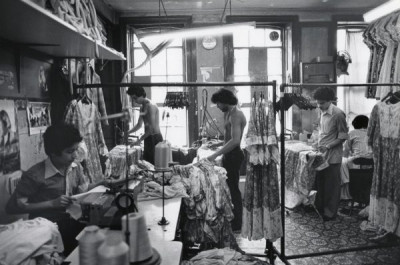
Survival Programmes: Garment workers, Aldgate, London, 1979
- Ref: 38PT91-1
- Date: 1979
- Artist: Paul Trevor
- Copyright: © Paul Trevor
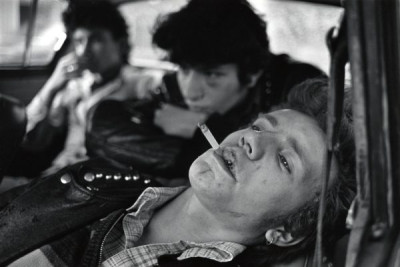
Survival Programmes: Parked car, Holloway, London, 1977
- Ref: 43NB101-1
- Date: 1977
- Artist: Nicholas Battye
- Copyright: © Nicholas Battye
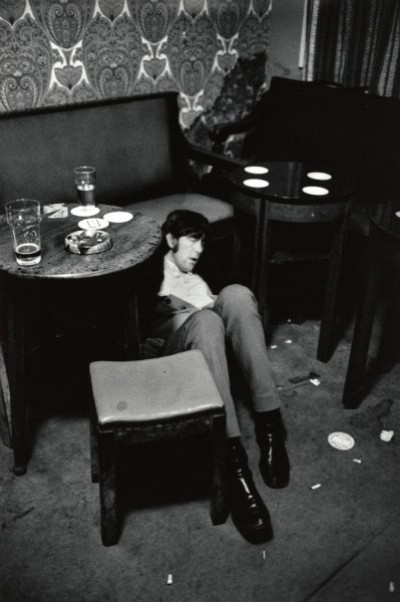
Survival Programmes: The Queens, South Bank, Teesside, 1975
- Ref: 44CSP103-1
- Date: 1975
- Artist: Chris Steele-Perkins
- Copyright: © Chris Steele-Perkins
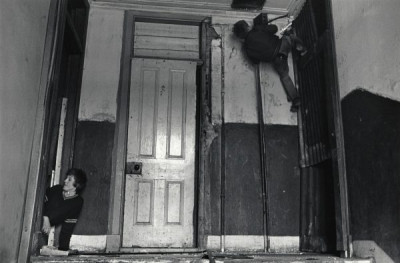
Survival Programmes: Vandals, tenement block, Govan, Glasgow, Scotland, 1975
- Ref: 48CSP109-1
- Date: 1968 – 1979, 1980 – 1989
- Artist: Chris Steele-Perkins
- Copyright: © Chris Steele-Perkins
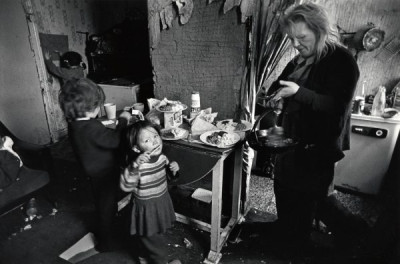
Survival Programmes: Lunch, Maryhill, Glasgow, Scotland, 1975
- Ref: 53CSP119-1
- Date: 1975
- Artist: Chris Steele-Perkins
- Copyright: © Chris Steele-Perkins
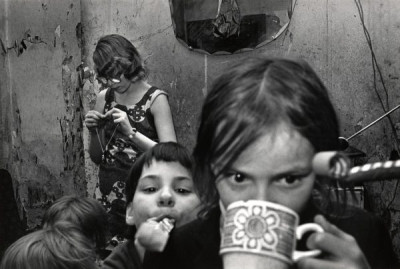
Survival Programmes: Christmas Eve, Bordesley Green, Birmingham, 1974
- Ref: 54-1
- Date: 1974
- Artist: Nicholas Battye
- Copyright: © Nicholas Battye
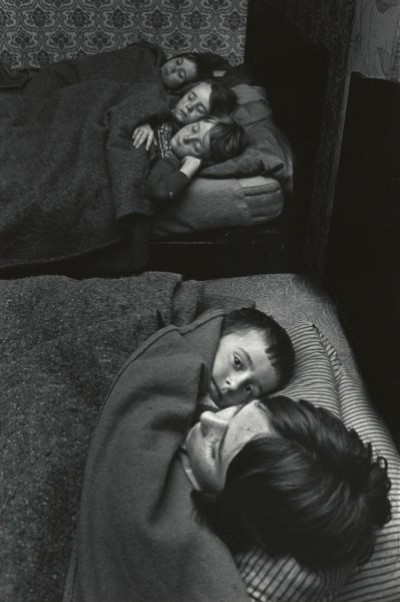
Survival Programmes: Council flat, Turf Lodge, Belfast, 1978
- Ref: 55CSP123-1
- Date: 1968 – 1979, 1980 – 1989
- Artist: Chris Steele-Perkins
- Copyright: © Chris Steele Perkins
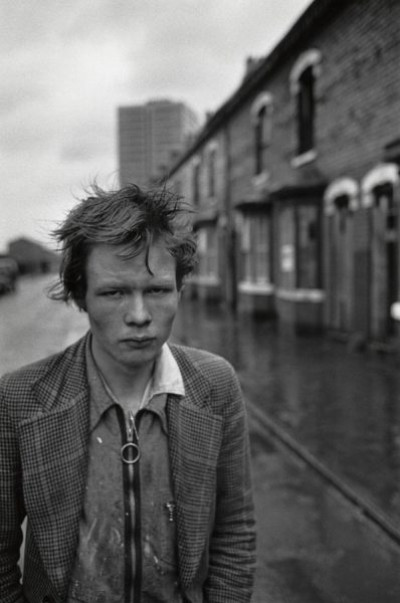
Survival Programmes: Rootless Youth, Small Heath, Birmingham, 1975
- Ref: 57NB127-1
- Date: 1975
- Artist: Nicholas Battye
- Copyright: © Nicholas Battye
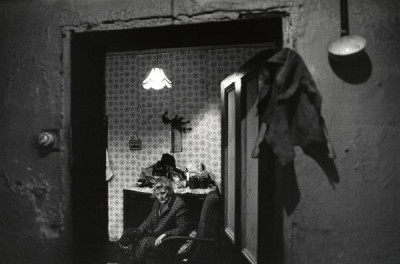
Survival Programmes: Widow With Pet, Middlesbrough, 1977
- Ref: 65CSP143-1
- Date: 1977
- Artist: Chris Steele-Perkins
- Copyright: © Chris Steele-Perkins
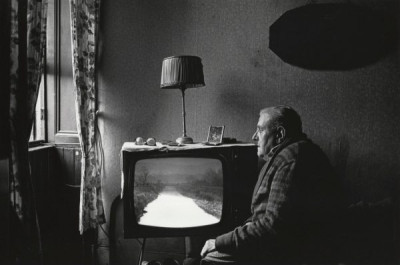
Survival Programmes: Home-Bound Pensioner, Maryhill, Glasgow, Scotland, 1975
- Ref: 71NB155-1
- Date: 1975
- Artist: Nicholas Battye
- Copyright: © Nicholas Battye
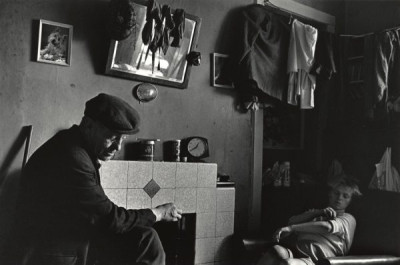
Survival Programmes: Sunday Afternoon, Govan, Glasgow, Scotland, 1975
- Ref: 72-1
- Date: 1975
- Artist: Chris Steele-Perkins
- Copyright: © Chris Steele-Perkins
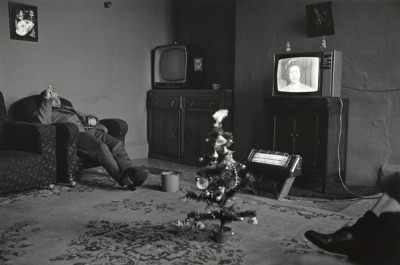
Survival Programmes: Christmas Day, Petrus Community Hostel, Everton, Liverpool, 1974
- Ref: 32PT159-1
- Date: 1974
- Artist: Paul Trevor
- Copyright: © Paul Trevor
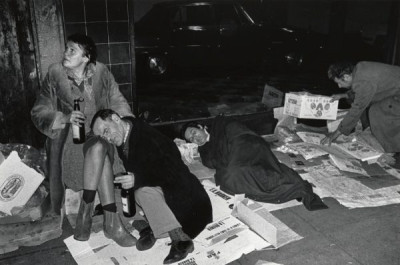
Survival Programmes: Outside Charing Cross Station, London, 1974
- Ref: 75-1
- Date: 1968 – 1979, 1980 – 1989
- Artist: Chris Steele-Perkins
- Copyright: © Chris Steele-Perkins
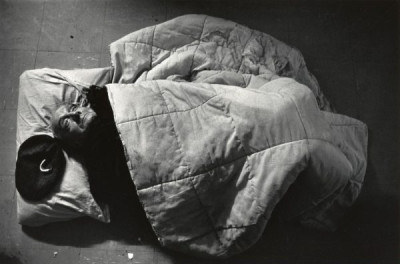
Survival Programmes: Late Arrival, Crypt Night Shelter, Metropolitan Cathedral, Liverpool, 1975
- Ref: 76-1
- Date: 1975
- Artist: Paul Trevor
- Copyright: © Paul Trevor
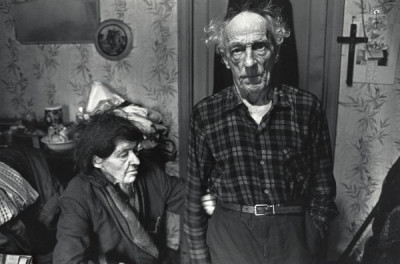
Survival Programmes: Pensioners, Sallyport Crescent, Newcastle upon Tyne, 1975
- Ref: 77-1
- Date: 1975
- Artist: Chris Steele-Perkins
- Copyright: © Chris Steele-Perkins
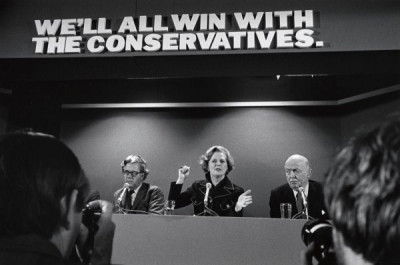
Survival Programmes: General Election Press Conference, Conservative Party Headquarters, London, 1979
- Ref: 81PT177-1
- Date: 1979
- Artist: Paul Trevor
- Copyright: © Paul Trevor
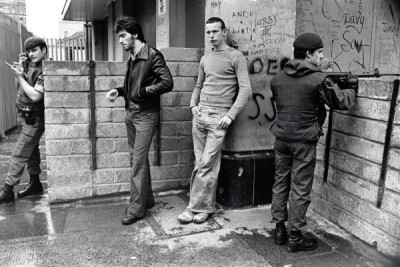
Survival Programmes: Young Men Detained for Identity Check, Belfast, Northern Ireland, 1978
- Ref: 86CSP187-1
- Date: 1978
- Artist: Chris Steele-Perkins
- Copyright: © Chris Steele-Perkins
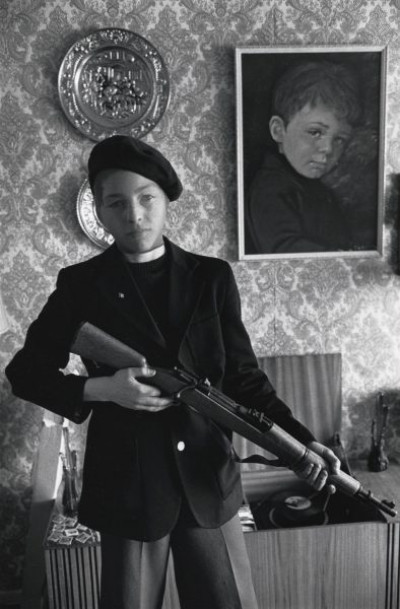
Survival Programmes: Youth with Toy Gun, Divis Flats, Belfast, Northern Ireland, 1978
- Ref: 87-1
- Date: 1978
- Artist: Chris Steele-Perkins
- Copyright: © Chris Steele-Perkins
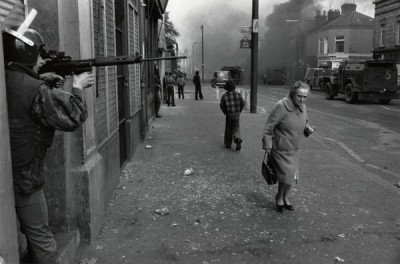
Survival Programmes: Falls Road, Belfast, Northern Ireland, 1978
- Ref: 88-1
- Date: 1978
- Artist: Chris Steele-Perkins
- Copyright: © Chris Steele-Perkins
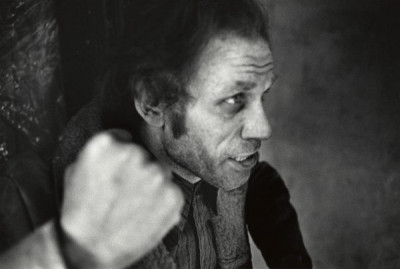
Survival Programmes: Ex-offender, Birmingham, 1975
- Ref: 92NB199-1
- Date: 1975
- Artist: Nicholas Battye
- Copyright: © Nicholas Battye
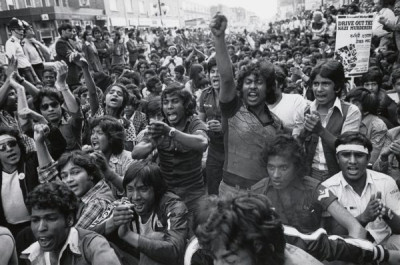
Survival Programmes: Anti-racism sit-down protest, Bethnal Green, London, 1978
- Ref: 93PT201-1
- Date: 1978
- Artist: Paul Trevor
- Copyright: © Paul Trevor
Related Works

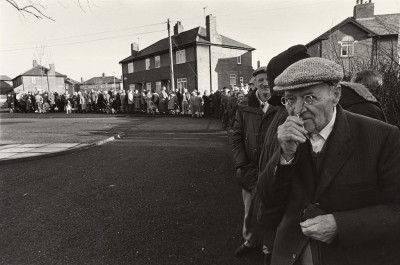
Meadow Well: An English Estate
Steve Conlan
Photographic
